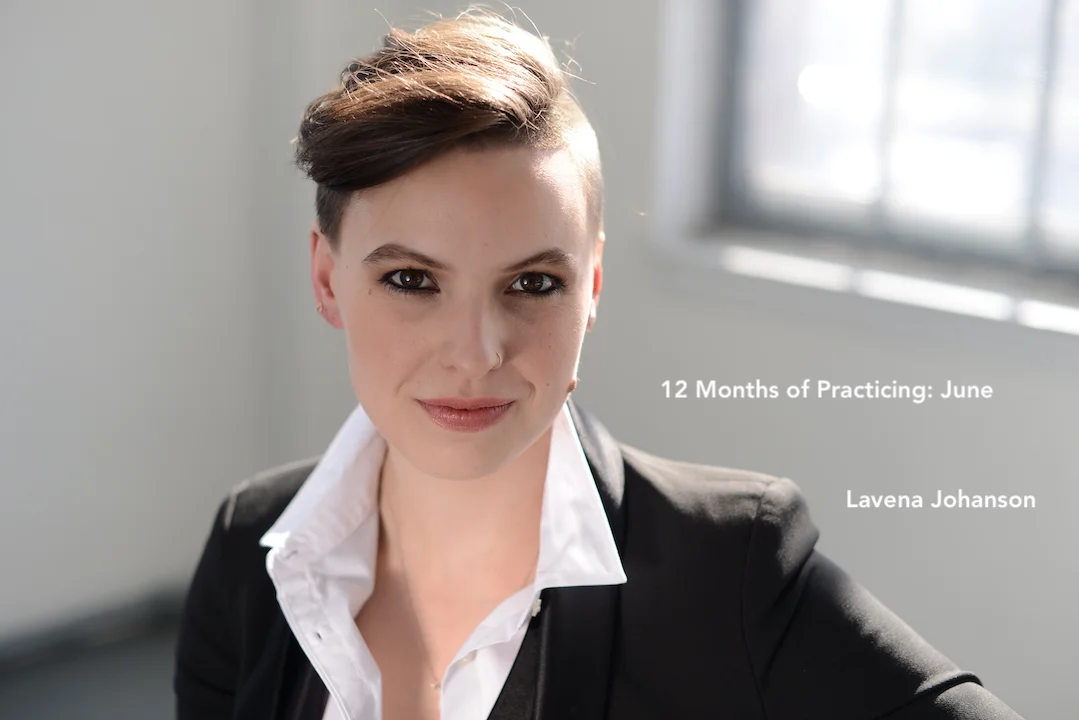For my June video in this series, I kept a One-Line-Per-Day journal for the whole month, tracking my practicing (or in some cases, non-practicing) experiences. I enjoyed it, and it was nice to have a different way to talk about how the month had gone. This made me remember that I used to keep a practicing journal (on and off between 2012 and 2017) and I decided to go looking for it. When I found it, my idea was to read the whole thing and find an entry that might be interesting enough to share, but for some reason it was hard for me to get myself to actually sit down and read it. When I finally forced myself to do it, I was struck by what I found.
Here’s an excerpt from an entry, written on 11/23/15:
“All right. Here’s what’s changed for me. It’s all the things I’ve thought about before...but something more important happened recently. I had an epiphany when I was listening to [a recording of] myself the other day. Not really during the Bach, that was just depressing :( But then the computer suddenly decided to go to the recording of [a trio I had performed with for a short time named Trio Corvino] doing 2nd movement of [“Ghost” Trio by Beethoven]. I had remembered that Colin [the violinist in the trio] said it was pretty good, so I let it play. Honestly, the beginning was captivating! I was pretty excited. But as I listened, I heard myself in a way that I hadn’t before...I wasn’t playing badly, but it seemed so flat in a way - one dimensional. And there were tons of little things like shifts that either just didn’t sound good or were clearly bad ideas that I just hadn’t thought too carefully about, or really listened to how it sounded. I felt, listening, like I was the weak link in the group, and that was really upsetting. The only thing after the beginning that captivated me again was the high A that I hold for a long time by myself. It was like a different person was playing. But then it went right back to being one-dimensional, not quite accurate Lavena. I listened to a lot of music after that, both recordings of myself and of other artists, and it was eye-opening. The depth that’s there in the people I admire is something I heard in myself at times, but there were always moments without it. I remember thinking while watching [my performance of the Schumann Cello Concerto] that I could tell when I was thinking about the next part/note/hard spot, etc. But at the same time, in the Strauss, Schumann, Elgar, and even the old Bach from my master’s recital that there were moments of depth that made the performances all the more disappointing when they didn’t last. The potential is there - and now I know what to listen for. While I was writing this, I was remembering that there was one coaching where MK [Michael Kannen, my former chamber music coach at Peabody] told me to listen to myself, to the sound I was making, and it made me upset. I remember thinking, “are you kidding me? Of course I’m listening to myself. I’m super good at listening.” And then in undergrad the cellist of the Miró [String Quartet] told me that my sound was boring, basically, and I was really sad/mad. But now I get it.”
It’s sad reading that now, but at the same time it’s powerful. That experience changed my life. It essentially put an auditory version of a mirror up to my self-image as a cellist and showed me I was not consistently playing at the level I thought I was, and that I needed to learn what it meant to actually listen to myself. It’s also a relief in a way to read this entry, because it feels very far away from me at this point in my life. I have been recording an album this year, which means I’ve been listening to myself A LOT. And while I have plenty of issues and little things that bug me about my playing, I don’t hear the same Lavena I describe in that journal entry. I am a much better listener and musician now than I was then because of that experience. Sometimes going through something painful about yourself ultimately makes you better. I am thankful for what I heard that day, because it was the only way I could get to where I am now.
